detail profile nieves yankovic
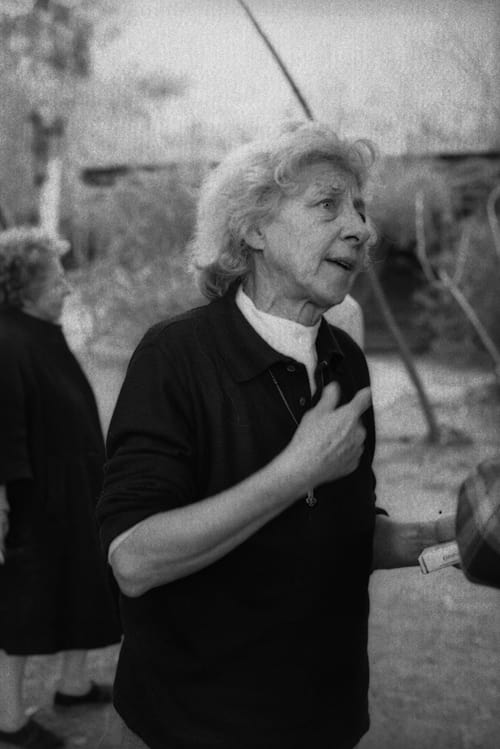
Nieves Yankovic
Nieves Yanco
atau dikenal sebagai
Riwayat Hidup
Born in Antofagasta, Nieves Yankovic lived in Europe from 1928 to 1942.
She was one of the founders of the University of Chile Experimental Theatre.
A film actress under the name Nieves Yanko, she made her debut in Luis Moglia Barth's Romance de medio sieglo (Romance of half a century, 1944).
She also acted in Carlos Borcosque's Amarga verdad (1945), Roberto de Ribón's El Padre Pitillo (1946), Carlos Hugo Christensen's La dama de la muerte (1946), Fred Matter's El paso maldito (1949), Pierre Chenal's El ídolo (1952) and Pierre Chenal's Confesiones al amanecer (1954).
Yankovic worked as assistant director under Carlos Hugo Christensen and Pierre Chenal.
In 1946 she married Jorge di Lauro, a sound engineer at Chile Films.
From 1958 until 1972 the pair directed documentaries together.
After the 1973 Chilean coup d'état, Yankovic and her husband worked as teachers.
Info Pribadi
Peran Yang Di Mainkan Nieves Yankovic
 Poetic look at the history and...
Poetic look at the history and...Easter Island 1965
Poetic look at the history and mysteries of Easter Island, through its landscapes, its mythical sculptures, as well as its parties, ceremonies, with abundant songs and dances, which become the true guides of the documentary. Also noteworthy is the annexation of the island to Chile, thanks to Policarpo Toro, captain of the Chilean Navy.
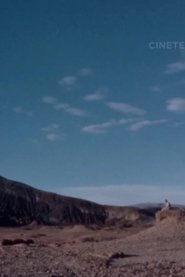 Report on the town of San...
Report on the town of San...San Pedro de Atacama 1964
Report on the town of San Pedro which exists in the middle of the desert and at over 2,430 meters above sea level. It also deals with the work of priest Gustavo Le Paige and the museum he helped develop.
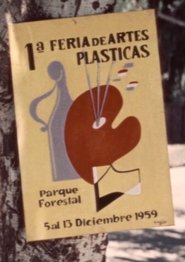 Visits the workshops of prominent Chilean...
Visits the workshops of prominent Chilean...Los artistas plásticos de Chile 1960
Visits the workshops of prominent Chilean painters and sculptors, a vision of artistic creation takes shape. Finally, the first Plastic Arts Fair in Parque Forestal was held, where several of them exhibited their works in the open air.
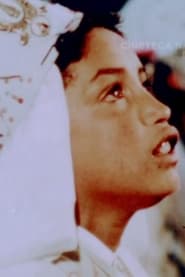 Detailed record of the celebration of...
Detailed record of the celebration of...Andacollo 1958
Detailed record of the celebration of the day of the Virgin of Andacollo, a feast that takes place between December 23 and 27 in the city of Andacollo, located in the Coquimbo Region, Chile. The arrival of the pilgrims, the way to the temple, and the beginning of the procession of the Virgin through the town, along with the dances of the numerous brotherhoods that gather. Then, the penitences for completed errands, other activities around the festivity and, finally, the departure of the pilgrims.
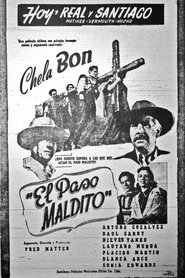 It narrates the misadventures of a...
It narrates the misadventures of a...El paso maldito 1949
It narrates the misadventures of a bad boss (Arturo Gonzálvez) who falls in love with a poor girl (Chela Bon), harming a good young man (Lautaro Murúa)
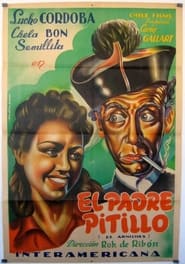 Rosita a poor and naive girl...
Rosita a poor and naive girl...El Padre Pitillo 1946
Rosita, a poor and naive girl, becomes entangled in a delicate love affair, which forces her to seek the spiritual help of the kind and ingenious Padre Pitillo, a country priest who does not censure the passion that has ruined poor Rosita, but puts things in their place, in his own particular way.
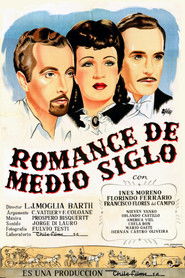 A love story in the midst...
A love story in the midst...Romance de medio siglo 1944
A love story in the midst of historical accidents in Chile, through the revolution of 1891, the Valparaiso earthquake of 1906, the centenary celebrations of 1910 to the present, in 1944.
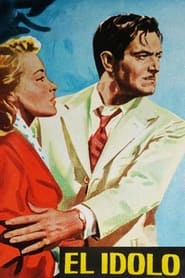 An actor argues with his wife...
An actor argues with his wife...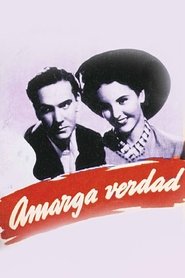 A very modest employee exchanges her...
A very modest employee exchanges her...